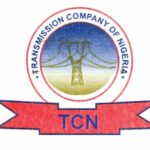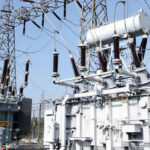The Minister of State for Power, Mr Goddy Jedy-Agba, has directed the Rural Electrification Agency (REA) and two other agencies under his purview to heighten their services towards improving the power supply experience of consumers nationwide.
Mr Jedy-Agba gave the charge on Tuesday during a media briefing in Abuja.
He said improved power supply will enable businesses to pick up and improve lives.
- Power sector privatisation has failed – Lawan
- NERC to sanction 11 DisCos for overbilling power consumers
The minister said: “Businesses will grow up if they have light.
“So, we need to step up our game and the essence of this interaction is for the media to assess whether we are succeeding at that.
“I feel that we should give those people (in rural areas) more than we give attention to ourselves in the city because you grow from down to up, and if we grow them, we will grow our nation.”
The Managing Director of REA, Ahmad Salihijo Ahmad, said over 80 million Nigerians lack access to power but that private investors like the World Bank had given a $350 million fund, and the African Development Bank (AfDB) gave $200m to finance solar mini grid and other rural power projects.
For the World Bank projects, Salihijo said: “What REA is doing to see how we can cater to communities that are off the grid.
“As at 2019, it stood at 103,500 households, and I am sure it is more than that now.
“We will give you an update,” he noted.
The Managing Director of the Nigerian Electricity Management Services Agency (NEMSA), Engr. Peter Ewesor, said the agency has inspected 5,652 power installations nationwide and that over 65 percent have been certified fit for supplying electricity.
Engr. Ewesor also said NEMSA was battling the influx of substandard electrical materials to ensure safety of electricity users.
He reiterated the ban on connecting homes (by elites) directly to 33 kilovolts (KV) power lines by the Distribution Companies (DisCos), saying it deprives more consumers of power supply on the 11KV lines.
“For the one year after enforcement, 2018 to 2019, there is a huge gap as we have grown 11KV faster than we had done in the past.
“Before, 33KV was growing while the 11KV line was almost stagnant,” he said on the compliance level.
The Director of Distribution Services in the Federal Ministry of Power, Engr. Briskila Sapke, confirmed this saying some DisCos have reported reverting to supplying power to households using only 11kV lines.
Director General of the National Power Training Institute of Nigeria (NAPTIN), Ahmed Nagode, said 16,000 technical personnel in the power sector have been trained.
While 8,500 of them were existing staff in the sector’s value chain, over 7,000 others were fresh graduates and artisans with about 50 percent already employed after the training.

 Join Daily Trust WhatsApp Community For Quick Access To News and Happenings Around You.
Join Daily Trust WhatsApp Community For Quick Access To News and Happenings Around You.


